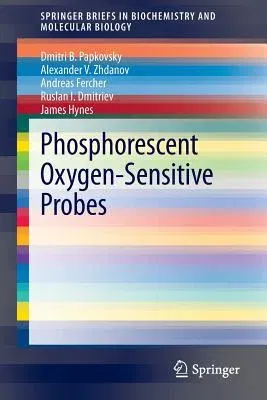Dmitri Papkovsky
(Author)Phosphorescent Oxygen-Sensitive Probes (2012)Paperback - 2012, 31 August 2012

Qty
1
Turbo
Ships in 2 - 3 days
In Stock
Free Delivery
Cash on Delivery
15 Days
Free Returns
Secure Checkout

Part of Series
Springerbriefs in Biochemistry and Molecular Biology
Part of Series
Springer Briefs in Biochemistry and Molecular Biology
Print Length
101 pages
Language
English
Publisher
Springer
Date Published
31 Aug 2012
ISBN-10
3034805241
ISBN-13
9783034805247
Description
Product Details
Book Edition:
2012
Book Format:
Paperback
Country of Origin:
NL
Date Published:
31 August 2012
Dimensions:
22.61 x
15.24 x
1.02 cm
Genre:
Science/Technology Aspects
ISBN-10:
3034805241
ISBN-13:
9783034805247
Language:
English
Location:
Basel
Pages:
101
Publisher:
Series:
Weight:
181.44 gm